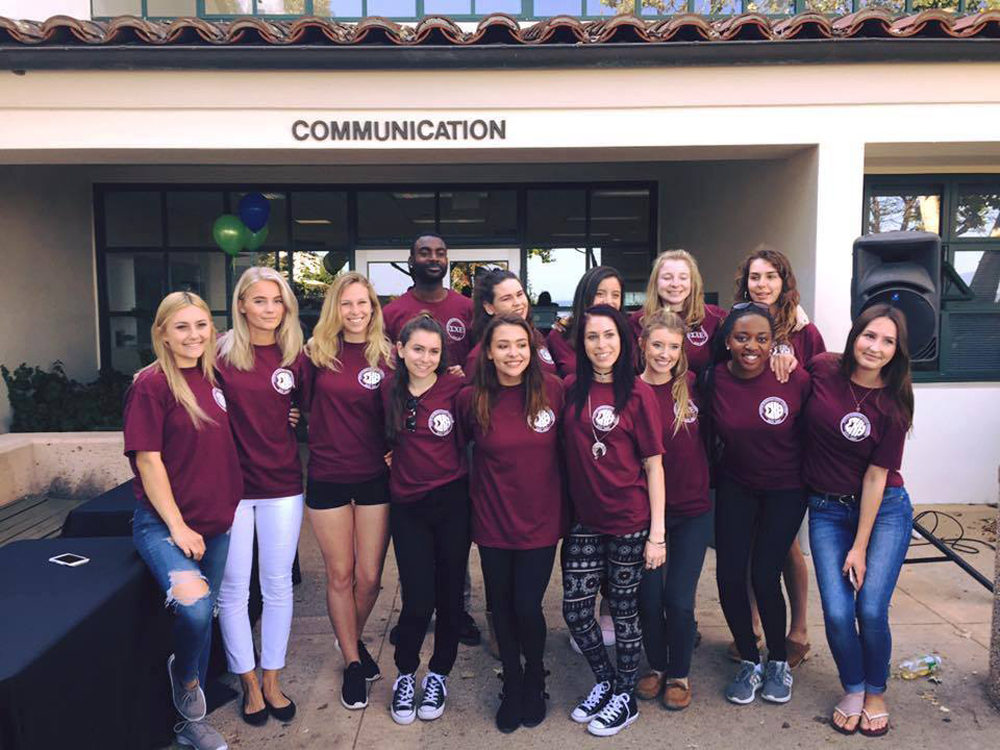
Studies in Communication
The department’s curriculum focuses on communication in a variety of settings—interpersonal,
small group, on-the-job, speaker-to-audience, via mass media, and between cultures
and nations.
Why Study Communication?
Students enroll in Communication courses for a variety of reasons. Some have primarily academic motives and seek either an associate, baccalaureate, or advanced degree in Communication. Other students enroll to become more effective in their careers. Still others seek personal growth, recognizing the importance of skillful self-expression and understanding others in their own lives.
Surveys show that most employers rank effective communication at the top of desired skills. As a result, many organizations look favorably upon applicants with proven ability to speak and listen skillfully. While communication is important in virtually any career, certain fields and positions are especially well-suited for Communication graduates—management, public information, broadcasting, personnel training, sales and law, among others.
The department’s curriculum focuses on communication in a variety of settings—interpersonal, small group, on-the-job, speaker-to-audience, via mass media, and between cultures and nations. In addition, instruction is available in argumentation, debate, communication theory and research methods, and leadership in a global society.
Students who choose the Communication Degree Program can gain valuable speaking skills by participating in our annual Lancaster Speech Showcase. Students will also have the opportunity to gain knowledge about Communication by participating in community and global projects through their classes. Students can also choose to take classes in one of the many Study Abroad Programs offered each year. Past study abroad programs include Italy, Australia, India and Rwanda.
Two Areas of Emphasis
The Communication Department at Santa Barbara City College offers two areas of emphasis within the AA Degree in Communication—a Communication Science Emphasis and an Applied Communication Emphasis.
The Communication Science Emphasis provides students with the foundational knowledge in communication theory and research methods and prepares them to make a successful transition to a Baccalaureate Degree in Communication Studies at any of the UC campuses, particularly UC, Santa Barbara. The Applied Communication Emphasis provides students with foundational knowledge in Communication Studies and its application in a variety of settings—interpersonal, small group, organizational, presentational speaking, mass media and intercultural.
In addition, the Communication Department offers an AA-T Degree in Communication Studies for Transfer. This degree provides the foundational knowledge in Communication Studies to students who want to earn a Baccalaureate Degree in Communication Studies. This degree is in compliance with the Student Transfer Achievement Reform Act (Senate Bill 1440, now codified in California Education Code, Sections 66746-66749) and guarantees admission to a California State University (CSU) campus for any community college student who completes an “Associate Degree for transfer,” a newly established variation of the Associate Degrees traditionally offered at a California community college. Upon completion of the transfer Associate Degree, the student is eligible for transfer with junior standing to the California State University (CSU) system. Students will be given priority consideration when applying to a particular program that is similar to the student’s community college area of emphasis. For information on transfer degrees, visit www.sb1440.org.
Department Student Learning Outcomes
- Demonstrate ability to analyze and critically evaluate communication practices, messages and outcomes in various contexts (e.g., interpersonal, intercultural, small group, public and professional communication, and mass media).
- Develop a repertoire of strategies for improved communication effectiveness and demonstrate the strategies in oral, written and/or presentation contexts.
- Read, evaluate and report on communication research.
- Recognize and articulate the benefits and challenges of diverse communicative practices of people living in a global/multicultural society.
- Demonstrate understanding of the ethical dimensions of communication.